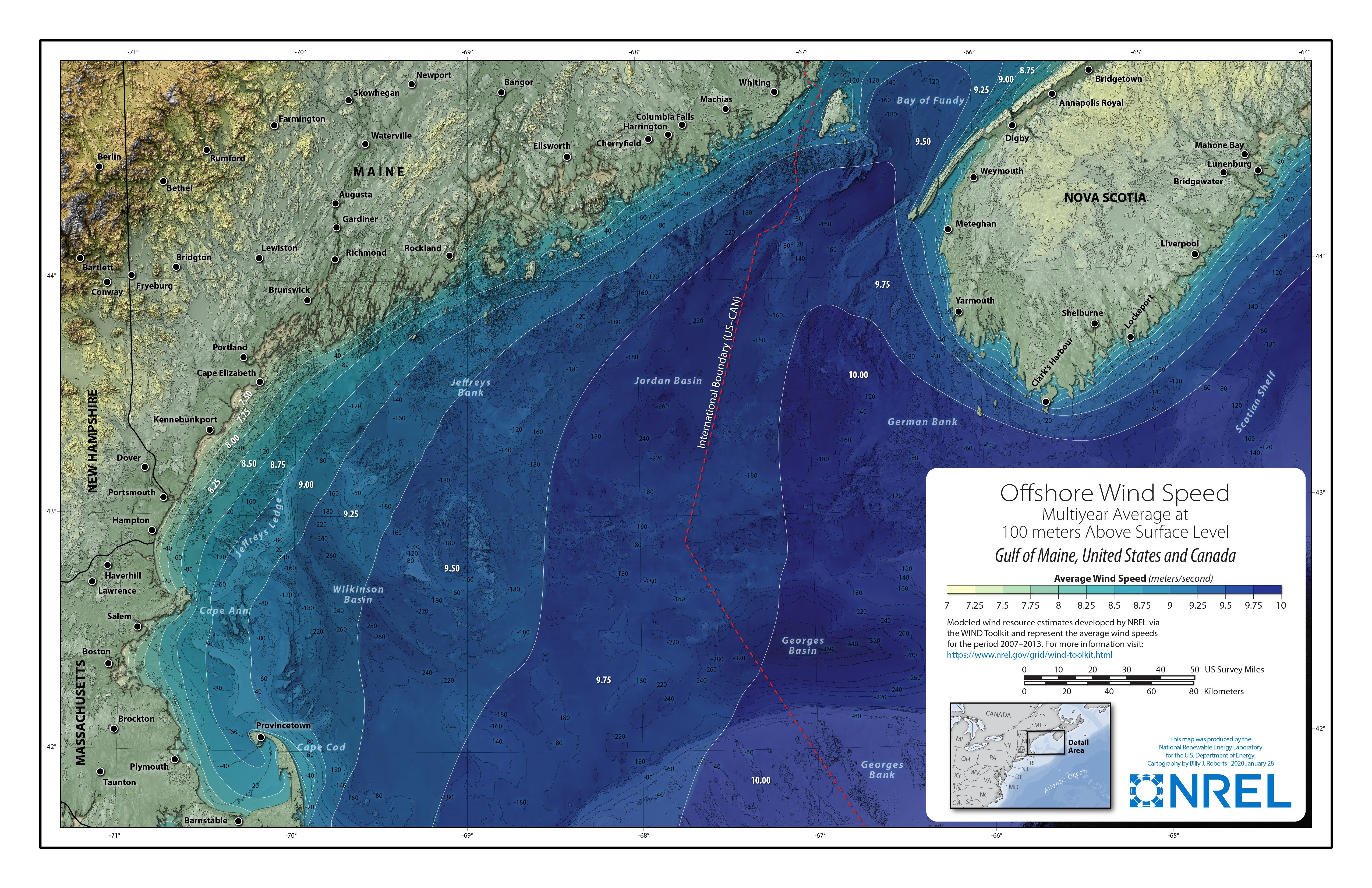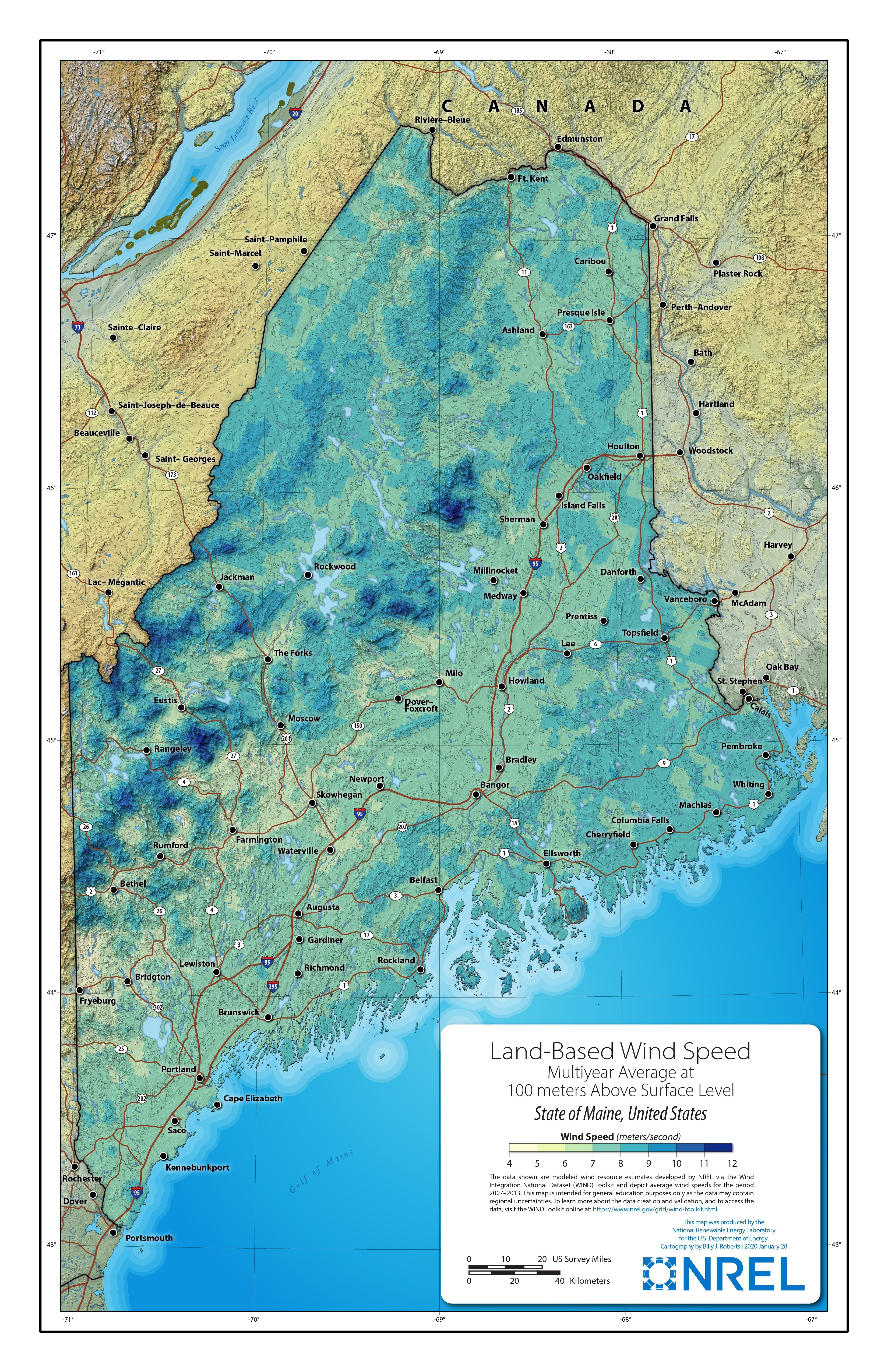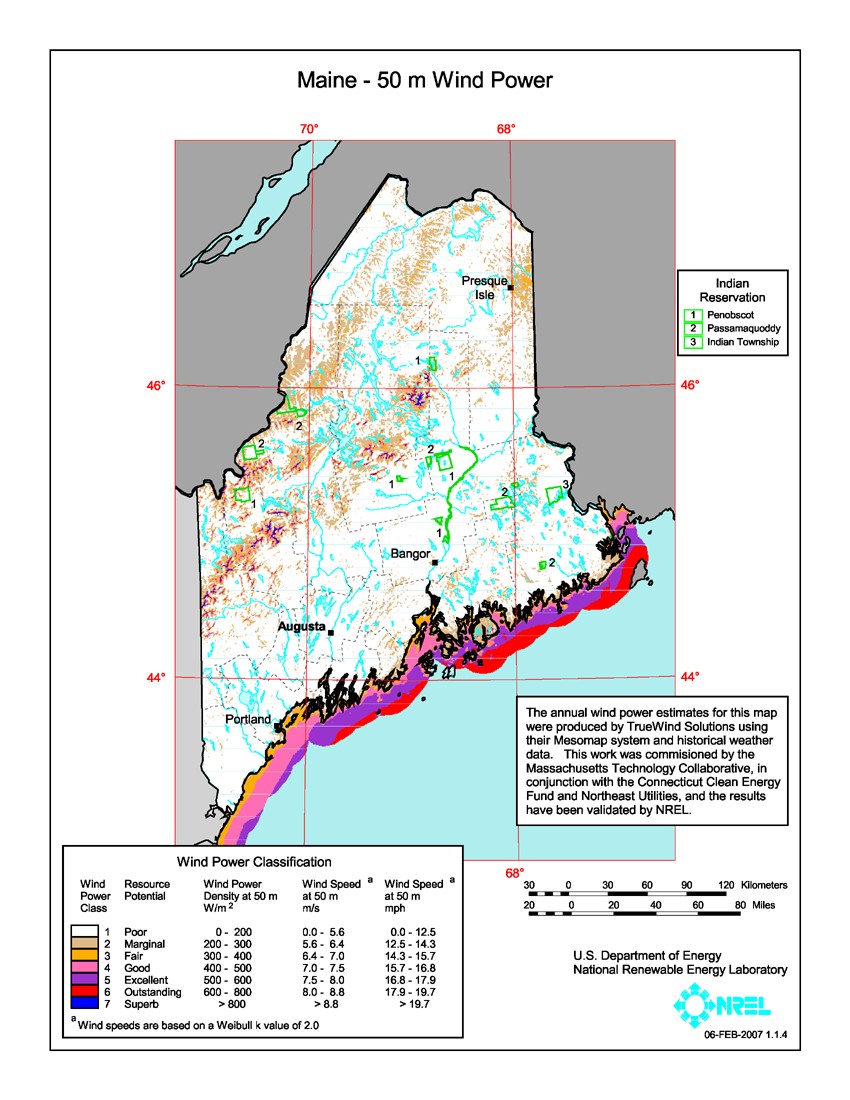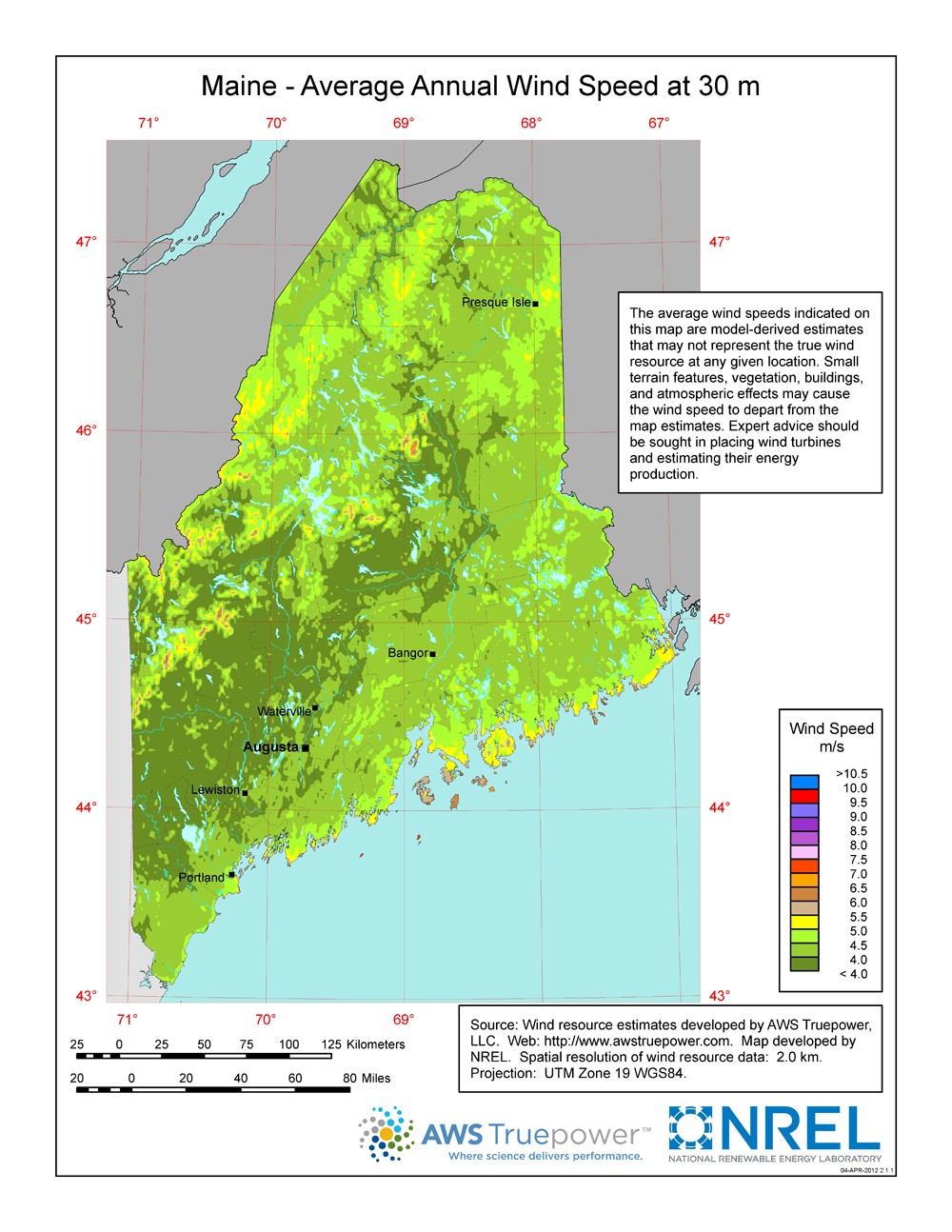Wind Energy in Maine
Find wind data and information in Maine, including maps, capacity, ordinances, and more in these areas:
Capacity & Generation
Installed Capacity 1,031 MW Source: American Clean Power Association
MW Under Construction 0 MW Source: American Clean Power Association
Based on EIA data from 2024
U.S. Wind Turbine Database
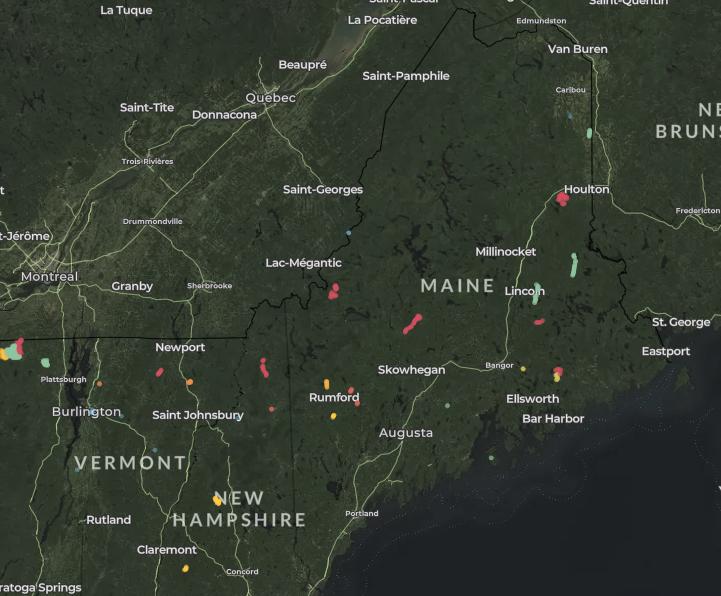
The United States Wind Turbine Database (USWTDB) provides the locations of land-based and offshore wind turbines in the United States, corresponding wind project information, and turbine technical specifications. The creation of this database was jointly funded by the U.S. Department of Energy Wind Energy Technologies Office via the Lawrence Berkeley National Laboratory Electricity Markets and Policy Group, the U.S. Geological Survey Energy Resources Program, and the American Wind Energy Association.
Wind Education & Training
Career training and projects at schools in Maine.
Wind for Schools Project Locations
There are no Wind for Schools projects in Maine.
Policies & Incentives
Maine Incentives
View current Maine renewable energy incentives on the DSIRE website.
Renewable Portfolio Standard
There are no wind ordinances in Maine.
See ordinances in other states or check the DSIRE database of federal and state renewable energy policies and incentives.
ME Cities with 100% Renewable Energy Commitments
There are no cities with 100% renewable energy commitments in Maine.
WETO R&D Projects
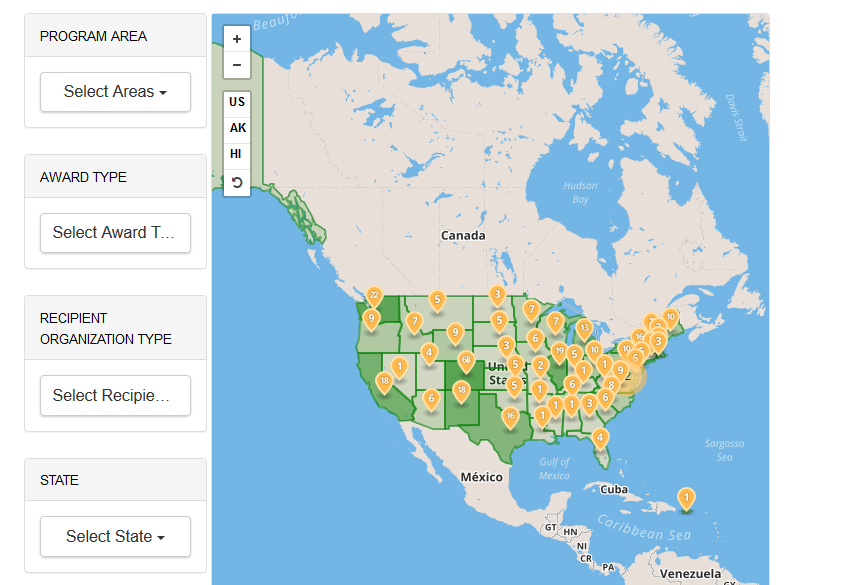
To view a list of wind research and development projects in Maine funded by the U.S. Department of Energy’s Wind Energy Technologies Office, visit the Wind R&D Projects Map and select Maine from the dropdown menu.
Wind Turbine Component Manufacturers
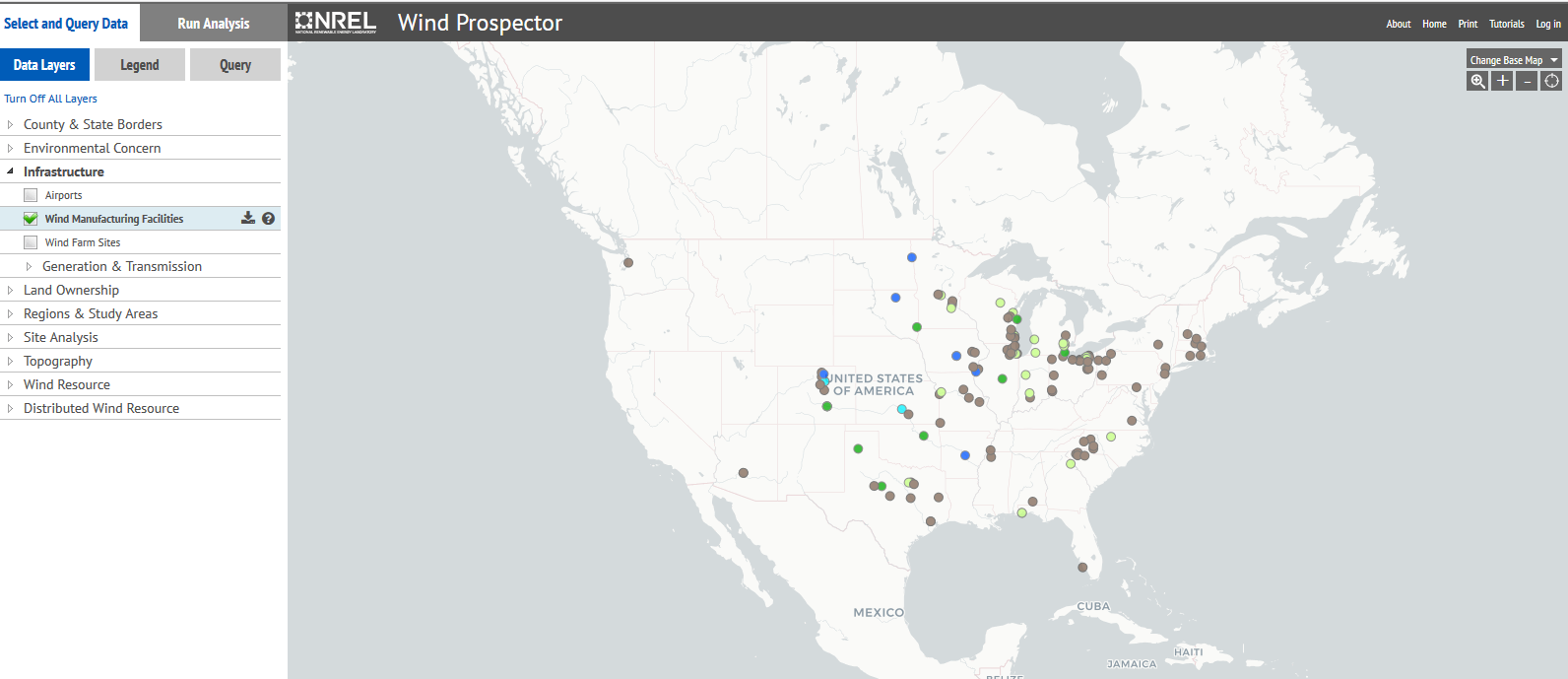
The National Renewable Energy Laboratory’s Wind Prospector tool is a web-based Geographical Information System that supports resource assessment and data exploration for wind development. Wind Prospector includes a data layer dedicated to the locations of U.S. wind turbine and component manufacturing and supply chain facilities. Corporate headquarters, service facilities, material suppliers, R&D and logistics centers, and smaller component manufacturers (e.g., bolt manufacturers) are not included. The list of facilities included is not intended to be exhaustive.
Maine Offices & Organizations
Bureau of Ocean Energy Management State Activities
The Bureau of Ocean Energy Management has seen strong interest in offshore renewable energy projects on the Outer Continental Shelf. BOEM works closely with certain coastal states regarding offshore energy development and is in the process of coordinating federal-state task forces. A summary of the status of activity in the different states is available.
Clean Energy Group
Clean Energy Group is a leading national, nonprofit organization working on innovative policy, technology, and finance programs in the areas of clean energy and climate change. The group's projects concentrate on climate and clean energy issues at the state, national, and international levels and include stakeholders from governments and the private and nonprofit sectors. Clean Energy Group assists states to create and implement innovative practices and public funding programs for clean energy project deployment; creates networks of U.S. and international policy makers to address climate stabilization strategies; and advances effective distributed innovation theories, finance, and commercialization tools for new climate technologies.
Environmental and Energy Technology Council of Maine
The Environmental and Energy Technology Council of Maine is the state's leading energy, environmental, and clean technology business and economic development organization. E2Tech serves many sectors in Maine's economy and facilitates networking opportunities for its members, partners, and the public. It provides connections to investment and funding opportunities, mentors, strategic partners, business and technical information, and other resources.
Island Institute
The Island Institute works to sustain Maine's island and coastal communities and exchanges ideas and experiences to further the sustainability of communities in the area.
Maine Governor's Energy Office
The Maine Governor's Energy Office's mission is to create effective public and private partnerships that advance Maine's energy security and economic development in an environmentally responsible manner. The Office's website provides comprehensive information and data on energy issues, incentives, initiatives, reports, policies, and costs.
Maine Green Power Connection
The Maine Green Power Connection helps consumers understand and buy green power in Maine.
Maine Offshore Wind Initiative
The Maine Offshore Wind Initiative, led by the Governor’s Energy Office, is dedicated to responsible growth of this industry through strategic planning, research, and coordination with groups from Maine, the nation, and world.
Maine Public Utilities Commission
The Maine Public Utilities Commission offers information about renewable energy in the state, including the Community-Based Renewable Energy Pilot Program and the Maine Renewable Portfolio Standard.
Natural Resources Council of Maine
One of the group's projects is renewable energy in Maine.
Northeast Regional Planning Body
The Northeast Regional Planning Body is responsible for developing New England’s ocean plan. The National Ocean Policy, established by Presidential Executive Order in 2010, called for the formation of nine Regional Planning Bodies to better manage the nation’s oceans and coasts. New England was the first region in the nation to respond to this call, launching the Northeast Regional Planning Body in 2012. The Northeast Regional Planning Body includes representatives from the six New England states, 10 federally recognized tribes, 10 federal agencies, and the New England Fishery Management Council. The Regional Planning Body has no authority to create new regulations. Its mandate is to create a plan and oversee its implementation, with many opportunities for public participation.
